HRT lowers breast cancer risk in women who've had hysterectomies
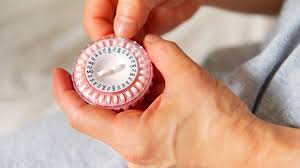







HRT lowers breast cancer risk in women who've had hysterectomies
Hormone replacement therapy (HRT) could lower the risk of breast cancer for some women, but raise it for others, a new study finds. Hormone replacement therapy (HRT) could lower the risk of breast cancer for some women, but raise it for others, a new study finds.
Researchers found that women who had had their uteruses removed and were taking HRT were about 25 percent less likely to develop cancer than those being given a placebo.
What's more, this same group of women was more than 50 percent less likely to die from breast cancer.
But, the team, from University of California Los Angeles Medical Center, also found that women who had not had their uteruses removed raised their risk of cancer by almost one-quarter by taking HRT.
There are two main types of HRT: combination HRT, which contains both estrogen and progesterone, and estrogen-only HRT.
Previous research has found that combination HRT, often used by postmenopausal women to alleviate menopausal symptoms, increases the risk of breast cancer by about 75 percent.
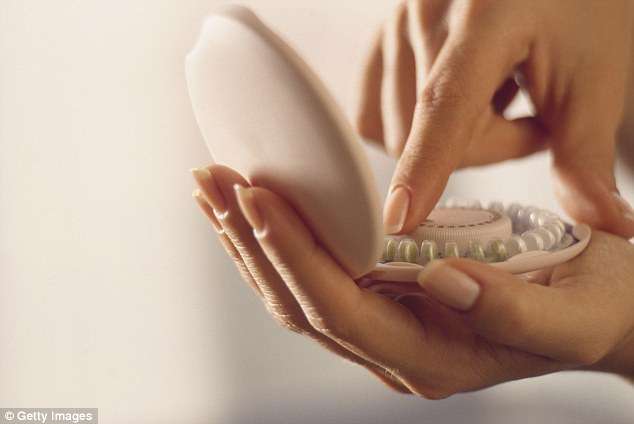
There is also a greater likelihood for users of combination HRT that the cancer may be found at a more advanced stage.
Scientists believe this is because cancerous cells often contain hormone receptors.
The risk decreases when it comes to estrogen-only HRT. Only when used for more than 10 years is the prospect of a breast cancer diagnosis raised.
For the study, published in JAMA, the team followed-up on two placebo-controlled randomized clinical trials involving more than 27,000 postmenopausal women.
Women were enrolled at 40 centers across the country from 1993 to 1998 and were followed-up with through December 31, 2017.
In one trial, involving more than 16,600 women with a uterus, about 8,500 received two doses of HRT - estrogen-only and estrogen plus progestin, which is a synthetic progestogen - while about 8,100 received a placebo.undefined
In the second trial, researchers look at women who hysterectomies, procedures during which the uterus and ovaries are removed.
Around 5,300 received one dose of estrogen-only HRT and approximately 5,400 were given a placebo.
Results showed that women with a prior hysterectomy and taking HRT were much less likely to develop breast cancer.
There were 238 cases among women without uteruses and taking the medication compared to 296 cases being given a placebo - a 24.3 percent difference.
Additionally, there was lower breast cancer mortality among women on HRT with 30 deaths compared to 46 deaths, a difference of 53 percent.
By comparison, in women with uteruses, HRT was linked to statistically significantly higher breast cancer incidence.
About 23 percent more women on HRT developed breast cancer with 584 cases compared to 447 cases.
However, there was no notable difference in breast cancer mortality between these groups.
Mary Kekatos Senior Health Reporter For Dailymail.com 19 hrs ago: 28th July 2020
Obesity can increase risk of coronavirus death by up to 90%, PHE report finds
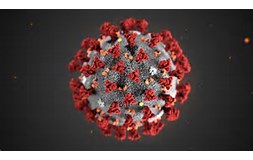






Obesity can increase risk of coronavirus death by up to 90%, PHE report finds
Severe obesity can increase the chance of dying from coronavirus by up to 90 per cent, new research shows, as Britons have been urged to shed the pounds.Severe obesity can increase the chance of dying from coronavirus by up to 90 per cent, new research shows, as Britons have been urged to shed the pounds.
A new Public Health England (PHE) report found a dramatic rise in the risk of hospitalisation and death from Covid-19, prompting an urgent Government campaign to slim down the nation.
The public has been snacking more in lockdown and, despite increases in sales of bikes and exercise equipment, overall activity levels appear to have dropped compared to before the pandemic, the PHE review said.Number 10 is now preparing to reveal an obesity-tackling plan “very soon”, with junk food adverts expected to be banned on television before the 9pm watershed and outlawed entirely online.
Promotions on snacks will be curbed in an attempt to tackle the nation’s waistlines, and restaurant and takeaway chains will have to publish the number of calories in the meals they serve, according to reports.
Shops will have to do the same with any alcohol they sell.The PHE review was published as gyms and indoor pools reopened around the country, allowing people to focus on their fitness.Indoor gyms and pools start to reopen in latest easing of lockdownBoris Johnson’s plans come only a year after he vowed to review “sin taxes”, such as proposals to extend the sugar tax to milkshakes.

The Prime Minister also confirmed his own brush with Covid-19, which led to him being admitted to intensive care in April, convinced him of the need to tackle obesity in Britain.
Boris Johnson ditches 'libertarian' stance on obesityThe study concluded that people who are overweight, with a body mass index (BMI) of 25 to 29.9, have a higher risk of hospitalisation and poor outcomes if they catch coronavirus.
Experts also discovered that having a BMI of 35 to 40 increases the risk of death from coronavirus by 40 per cent compared to people who are a healthy weight.
A BMI of 40 or more increases the risk by 90 per cent. The report said being overweight or obese increases the chance somebody will end up critically ill in intensive care.
It found that 7.9 per cent of critically ill patients with Covid-19 in intensive care units have a BMI of over 40 compared, with 2.9 per cent of the general population.Boris: We could be fighting Covid next summerSpeaking on Friday, the Prime Minister said he had lost more than a stone since his health scare, and reiterated that being obese is a risk factor when it comes to coronavirus.
Mr Johnson also admitted, in a marked change of tone, that the Government could have handled the early stages of the outbreak “differently”
Dr Alison Tedstone, chief nutritionist at PHE, said: “The current evidence is clear that being overweight or obese puts you at greater risk of serious illness or death from Covid-19, as well as from many other life-threatening diseases.
“It can be hard to lose weight and even harder to sustain it, which is why people cannot easily do it on their own.
“Losing weight can bring huge benefits for health – and may also help protect against the health risks of Covid-19.
The case for action on obesity has never been stronger.”
Boris Johnson warns 'we could be fighting Covid next year'The study pointed out that snack food and alcohol supermarket sales have risen, possibly reflecting the fact shops, pubs and cafes were closed during lockdown and people turned to snacking and drinking at home.
During the first six months of this year, alcohol sales were up 30 per cent on the same period last year, while confectionery sales were up 20 per cent and foods for sweet home cooking rose 22 per cent, the PHE report said.
Meanwhile, a survey of more than 2,000 people for the Food Standards Agency in May found that people were cooking more from scratch – but were also snacking on cakes, biscuits, confectionery and savoury snacks more often.
Reference: Evening Standard: Harriet Brewis 4 days ago:24th July 2020
Doctor runs 22 miles in face mask to show they do not lower oxygen levels
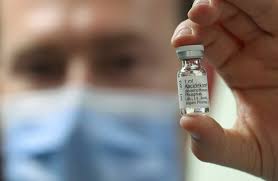







Doctor runs 22 miles in face mask to show they do not lower oxygen levels
A coronavirus doctor has run more than 20 miles wearing a face mask to prove the coverings do not cut off oxygen levels in the blood.A coronavirus doctor has run more than 20 miles wearing a face mask to prove the coverings do not cut off oxygen levels in the blood.
People already have to wear face coverings on public transport in the UK, and they are set to become mandatory in English shops from Friday.
But despite this the UK is "way behind many countries in terms of wearing masks," according to Royal Society chief Venki Ramakrishnan, with some complaining that they are uncomfortable or difficult to breathe in.
Tom Lawton, an intensive care doctor in Bradford, set out to prove that masks do not deprive the body of the oxygen it needs by running 22 miles to and from work.The former triathlete raised £1,675 for food bank charity the Trussell Trust with the run.
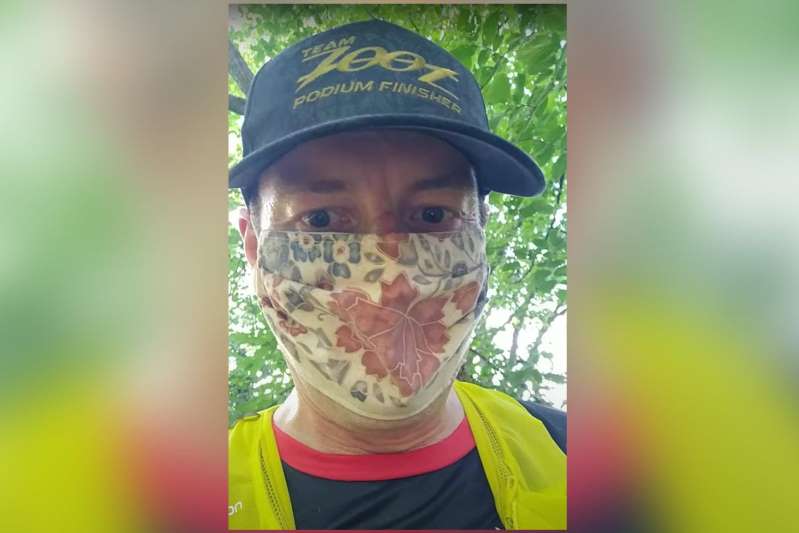
He told the Standard that he has sympathy for people who do not want to wear a mask.
He added: "We've had to wear them at work for months and they're definitely annoying. And there are people with genuine psychological reasons who just won't be able to."But for anyone who can - know that it's irritating but not dangerous, and it can help keep this disease under control. My mask protects you, your mask protects me - so please wear one!
"My real concern was all those people who find it feels strange, and end up scared by these stories of oxygen levels into believing it's not safe. Particularly people with asthma... who are understandably very worried about Covid."undefined
Mr Lawton said on his GoFundMe page: "As an intensive care doctor dealing with some of the worst of the Covid-19 pandemic I am massively in favour of anything that might keep us all safe.
"I have therefore been upset at the misinformation going out around oxygen levels and masks, as well as confused messaging on when to wear them (indoors!)"
He joked: "Clearly this will entirely solve everything and put an end to debate on this issue."Mr Lawton carried an oxygen monitor during his run, which showed that his oxygen levels remained at 98 per cent throughout.
The Bradford Royal Infirmary doctor said he was "breathing enough oxygen for about 10 calm people" during the run.
His run came after a crowd of demonstrators gathered last Sunday in Hyde Park to protest new face covering rules, claiming they won't be "masked or poisoned".
Reference: Evening Standard: Kit Heren 6 days ago26th July 2020
Robert O'Brien: Trump's national security adviser tests positive for coronavirus








Robert O'Brien: Trump's national security adviser tests positive for coronavirus
Robert O’Brien, President Donald Trump’s national security adviser, tested positive for Covid-19 after attending a family event and has been self-isolating at his home while working remotely, according to reports.Robert O’Brien, President
Donald Trump’s national security adviser, tested positive for Covid-19 after attending a family event and has been self-isolating at his home while working remotely, according to reports.
The 54-year-old Republican is the fourth national security adviser to serve in the White House under Mr Trump, and has held the position since 2019. His diagnosis was first reported by Bloomberg News’ White House reporter Jennifer Jacobs.
He was the closest White House official to the president known to have contracted the novel coronavirus, which has killed at least 149,000 Americans since the beginning of the global pandemic.
Mr O’Brien’s office in the White House was situated close to the Oval Office, Bloomberg News reported, as well as an office occupied by the vice president in the West Wing.undefined
The White House has significant testing and tracing capabilities for its own staff and key officials close to the president, who are reportedly tested daily for Covid-19. The White House confirmed Mr O'Brien's diagnosis in a statement to The
Independent, saying he has mild symptoms associated with the virus.undefined"National Security Adviser Robert O’Brien tested positive for COVID-19," the White House said. "He has mild symptoms and has been self-isolating."
The White House statement also said "there is no risk of exposure to the President or the Vice President" and that "the work of the National Security Council continues uninterrupted" as Mr O'Brien works from a "secure" off site location.
Reference: Independent: Chris Riotta 1 day ago: 27th July 2020
Articles - Most Read
- Home
- LIVER DIS-EASE AND GALL BLADDER DIS-EASE
- Contacts
- African Wholistics - Medicines, Machines and Ignorance
- African Wholistics -The Overlooked Revolution
- African Holistics - Seduced by Ignorance and Research
- The Children of the Sun-3
- Kidney Stones-African Holistic Health
- The Serpent and the RainBow-The Jaguar - 2
- PART ONE: DIS-EASE TREATMENT AND HEALTH-3
- 'Tortured' and shackled pupils freed from Nigerian Islamic school
- King Leopold's Ghost - Introduction
- PART ONE: DIS-EASE TREATMENT AND HEALTH-4
- PART ONE: DIS-EASE TREATMENT AND HEALTH-2
- PART ONE: DIS-EASE TREATMENT AND HEALTH-5
- African Wholistics - Medicine
- Menopause
- The Black Pharaohs Nubian Pharaohs of Ancient Egypt
- The Mystery System
- PART ONE: DIS-EASE TREATMENT AND HEALTH-6
Who's On Line?
We have 133 guests and no members online
Ad Agency Remote
Articles - Latest
- The Male G Spot Is Real—and It's the Secret to an Unbelievable Orgasm
- Herbs for Parasitic Infections
- Vaginal Care - From Pubes to Lubes: 8 Ways to Keep Your Vagina Happy
- 5 Negative Side Effects Of Anal Sex
- Your Herbs and Spices Might Contain Arsenic, Cadmium, and Lead
- Struggling COVID-19 Vaccines From AstraZeneca, BioNTech/Pfizer, Moderna Cut Incidence Of Arterial Thromboses That Cause Heart Attacks, Strokes, British Study Shows
- Cartilage comfort - Natural Solutions
- Stop Overthinking Now: 18 Ways to Control Your Mind Again
- Groundbreaking method profiles gene activity in the living brain
- Top 5 health benefits of quinoa
- Chromolaena odorata - Jackanna Bush
- Quickly Drain You Lymph System Using Theses Simple Techniques to Boost Immunity and Remove Toxins
- Doctors from Nigeria 'facing exploitation' in UK
- Amaranth, callaloo, bayam, chauli
- 9 Impressive Benefits of Horsetail
- Collagen The Age-Defying Secret Of The Stars + Popular Products in 2025
- Sarcopenia With Aging
- How to Travel as a Senior (20 Simple Tips)
- Everything you need to know about mangosteen
